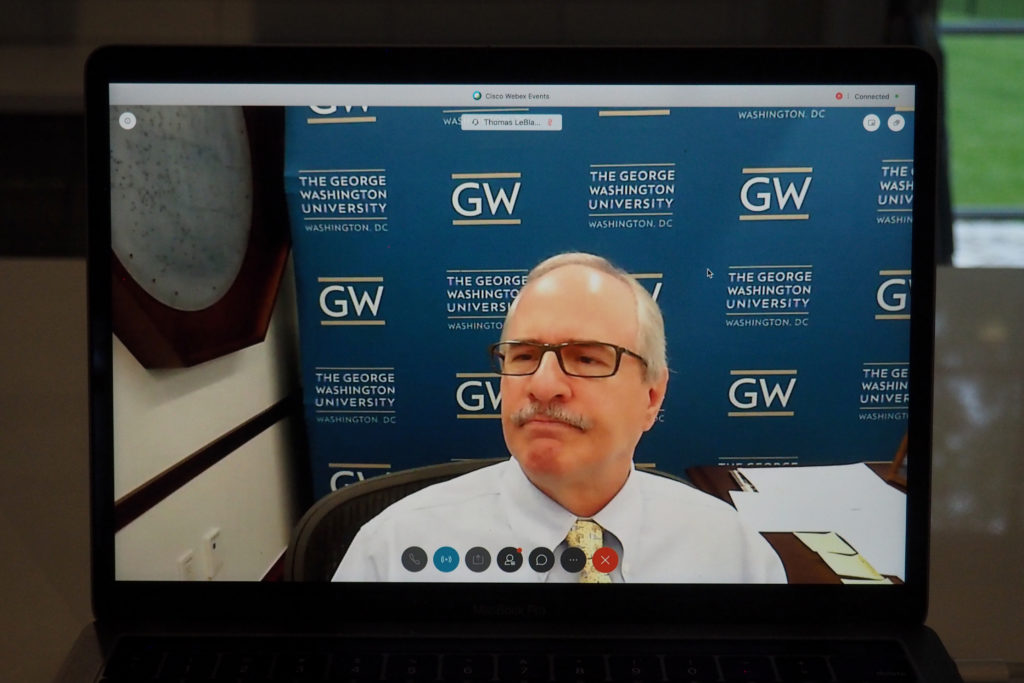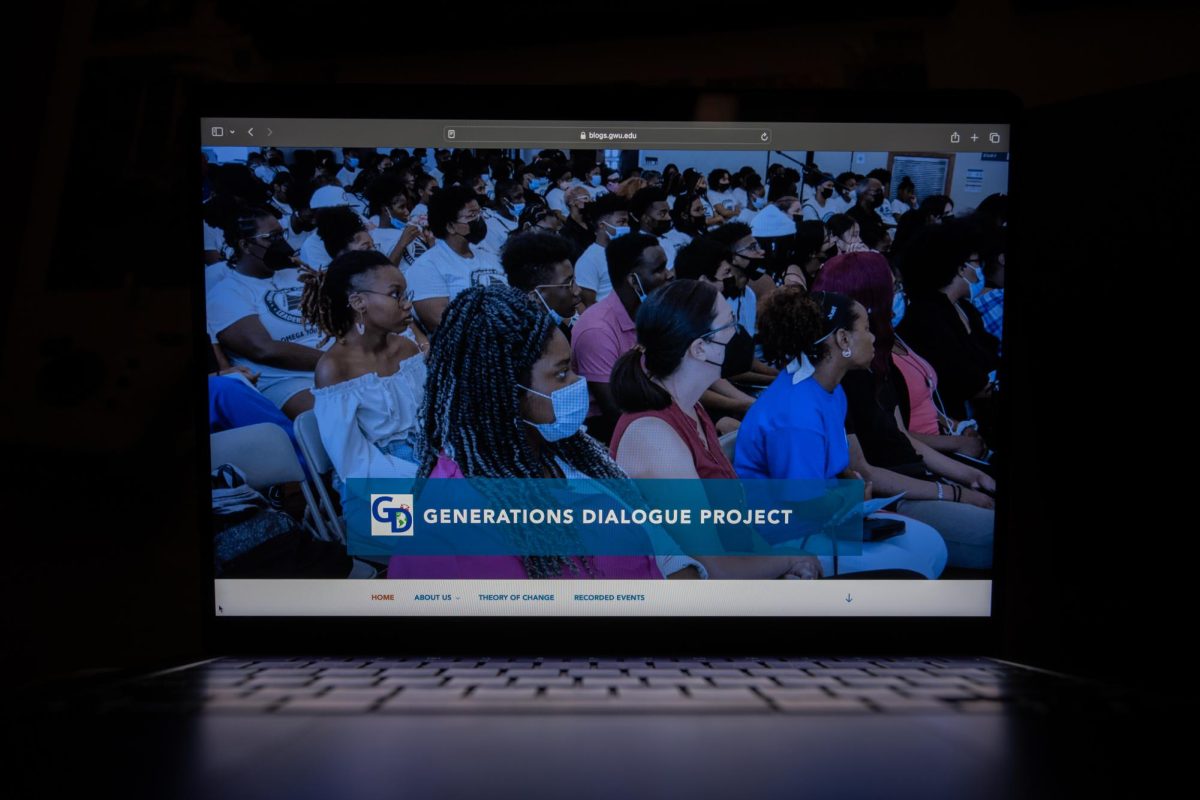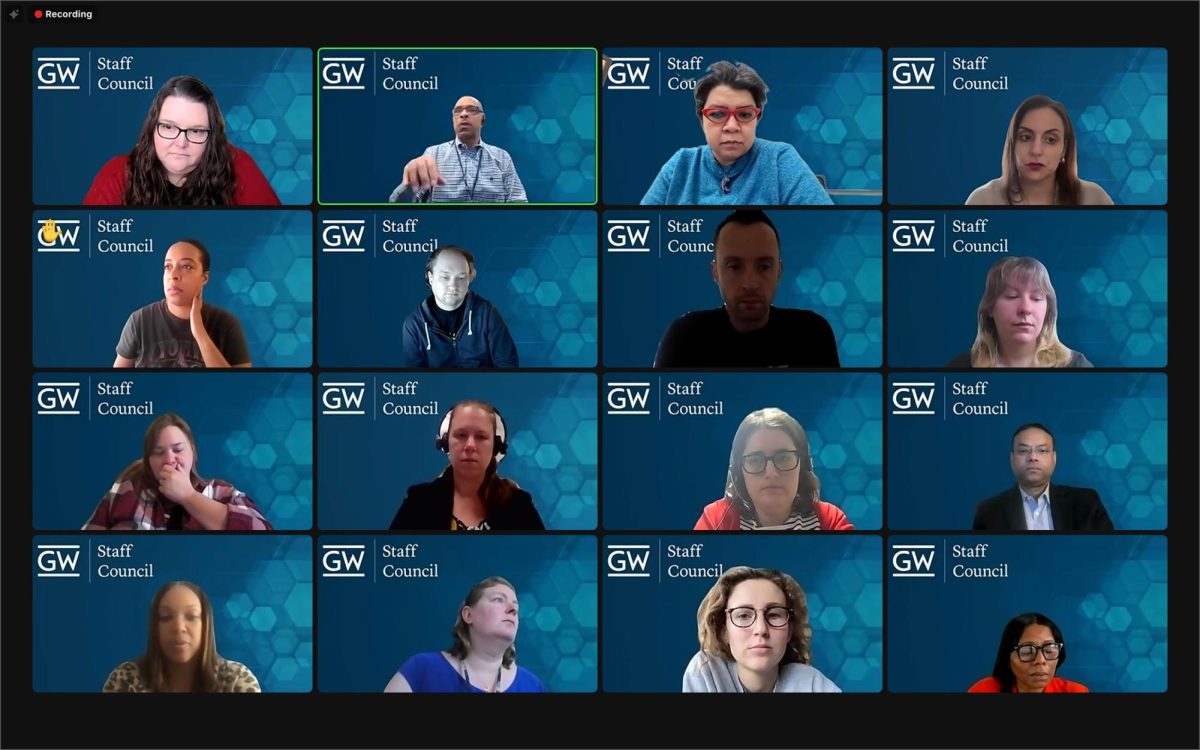Updated: Oct. 10 at 11:00 a.m.
The Faculty Senate voted Friday to express “severe disapproval” of University President Thomas LeBlanc’s hiring of Heather Swain, who rescinded her job offer after widespread criticism over her role in the Larry Nassar sexual abuse case.
The senate’s appointment, salary and promotion policies committee recommended the senate censure LeBlanc following a private meeting with him about the matter on Sept. 25, but some senators voiced concerns about a censure damaging the potential for future shared governance. The senate voted 20-13 to remove the mention of censure, which was followed by a 33-3 vote approving the amended resolution.
The senate said LeBlanc violated the “core principles” of GW and endorsed his proposed vetting process for future vice presidential hires.
“It gives me no pleasure to introduce this resolution, but we have to do what we have to do,” Murli Gupta, the chair of the ASPP committee, said at the meeting.
LeBlanc announced Swain as GW’s vice president of marketing and communications on Aug. 12, but within days of the announcement, hundreds signed petitions condemning the hiring. Investigators said in a 2018 report that Swain helped Michigan State University engage in a “culture of anti-transparency” during the Nassar investigation through her role in MSU’s communications office.
Swain told a trustee to copy Michigan State’s legal counsel on an email to other trustees in order to “maintain privilege” even though the email did not seek legal advice, the report states.
Moments before the senate began debating the resolution, LeBlanc left the virtual meeting and asked Provost Brian Blake to chair the remainder of the meeting. LeBlanc also signed off from the senate’s September meeting before senators discussed the original censure resolution and decided to refer it to the ASPP committee.
LeBlanc did not immediately return a request for comment through a spokesperson.
The Board of Trustees said in a statement that LeBlanc met all of the requests in the original censure resolution and committed to a new process to “strengthen” the involvement of faculty in future vice presidential hires.
Blake said he had “strong feelings” about the resolution that would put him in a “compromising position” to chair the proceedings and delegated his responsibility to Arthur Wilson, the senate’s executive committee chair. Blake logged off from the virtual meeting during the discussion.
Arthur Wilson, the senate’s executive committee chair, said trustees did not want faculty to censure LeBlanc, preferring that senators voice strong disapproval of the hiring instead.
Wilson said maintaining a dialogue with trustees and administrators, rather than voting to censure, will enable senators to advocate for faculty more successfully.
“My sense is the issue here is transparency,” Wilson said. “The administration is not particularly transparent nor are the trustees. As long as we have that hierarchy, the University would not be as successful as it could be. We need to make sure shared governance is working.”
Sylvia Marotta-Walters, a faculty senator and the former senate executive committee chair, said the senate made it clear that LeBlanc’s hiring of Swain was wrong at its September meeting, and a formal censure would only impair the senate’s ability to practice shared governance with administrators in the future.
“Justice was served in September when we uniformly said this was an egregious act,” Marotta-Walters, who voiced support for the amended resolution, said at the meeting. “Now it’s time to make peace.”
Miriam Galston, a faculty senator and an associate professor of law, said she supported the censure resolution in September but opposed doing so now because LeBlanc provided a full accounting of the Swain hiring process and proposed changes for administrators to vet candidates in the future.
“Shared governance means not only that they listen to us, but we listen to them,” Galston said. “In this situation where we have gotten the two things we requested, I don’t see what productive purpose passing this censure serves.”
Charles Garris, a faculty senator and a former senate executive committee chair, said Swain didn’t do “anything wrong,” and the University community has been perpetuating false narratives about Swain’s involvement with Nassar.
“I believe resolution 21/13 is a disgrace for supporting this kind of demonization of an innocent person and will damage our credibility as the senate,” Garris said.
But some senators cautioned against watering down the censure resolution, arguing it would set a bad precedent.
Jamie Cohen-Cole, a faculty senator and an associate professor of American studies, referenced LeBlanc’s comments in January 2019 saying that leaders are often not held accountable for their behavior. Administrators identified inconsistent leadership as one of four top culture issues at GW following an employee survey conducted by the Disney Institute.
Cohen-Cole said the ASPP committee made their recommendation based on additional information from the private meeting that other senators do not have, so the senators should follow the suggestion.
The senate met last month to consider censuring LeBlanc for the hiring and recommitted the resolution to the ASPP committee to seek a “full and complete” accounting of the Swain hiring process before a final vote over concerns about LeBlanc’s legal ability to share hiring details publicly.
“A vote against this measure is a vote by members of the senate that their judgement in the absence of data that ASPP members had is better than what ASPP had,” he said. “You would move to put your judgement without data ahead of what your peers did with data.”
Shaista Khilji, a faculty senator and a professor of human and organizational learning, said the GW community is “hurting.” She supported maintaining a formal censure but added LeBlanc should be allowed to learn from his mistake.
“I would like to move on and allow him to show it was a mistake,” Khilji said. “The senate is a place where we can respectfully disagree with each other and allow him to show he has learned.”
Hundreds of faculty, staff, students and alumni have signed petitions and statements calling on LeBlanc to resign in recent months, with many citing the Swain hiring in their rationale.
The ASPP committee also endorsed LeBlanc’s proposed vetting procedure following the September private meeting.
The procedure includes creating an internal search committee to aid an outside search firm and a “trusted third party” to vet candidates through press and social media searches, criminal and civil case searches, and reference checks.
The University president will personally contact the last two presidents or leaders for whom all finalist candidates worked before making an offer, the procedure states.










